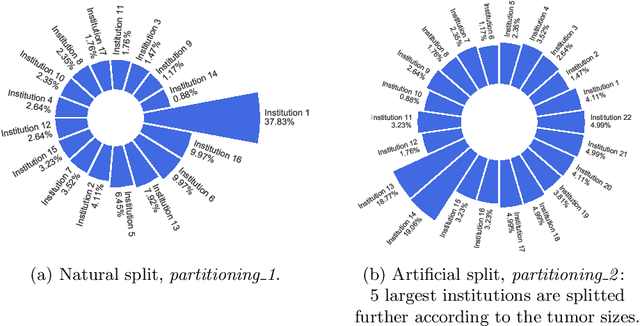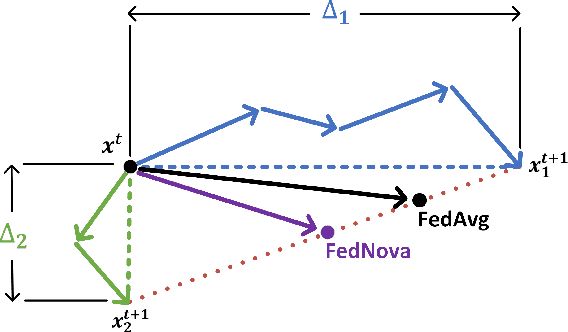Evaluation and Analysis of Different Aggregation and Hyperparameter Selection Methods for Federated Brain Tumor Segmentation
Paper and Code
Feb 16, 2022



Availability of large, diverse, and multi-national datasets is crucial for the development of effective and clinically applicable AI systems in the medical imaging domain. However, forming a global model by bringing these datasets together at a central location, comes along with various data privacy and ownership problems. To alleviate these problems, several recent studies focus on the federated learning paradigm, a distributed learning approach for decentralized data. Federated learning leverages all the available data without any need for sharing collaborators' data with each other or collecting them on a central server. Studies show that federated learning can provide competitive performance with conventional central training, while having a good generalization capability. In this work, we have investigated several federated learning approaches on the brain tumor segmentation problem. We explore different strategies for faster convergence and better performance which can also work on strong Non-IID cases.
 Add to Chrome
Add to Chrome Add to Firefox
Add to Firefox Add to Edge
Add to Edge